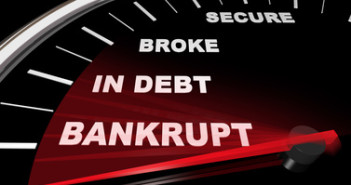EUR/USDÂ kicked off the week with flying colors, riding on the victory of pro-bailout parties in Greece. While hurdles to forming a coalition will likely be overcome, the troubles in the euro-zone are far from over. The focus quickly shifts to Spain, where bond yields remain at dangerous levels, and the announced bailout might already be too small. It seems that without central bank intervention, more falls are on the cards.
Here’s an update on technicals, fundamentals and what’s going on in the markets.
EUR/USD Technicals
- Asian session: The pair started very high, reached 1.2748 and gradually fell. The fall accelerated in the European session.
- Current range: 1.2587 to 1.2624.

- Further levels in both directions: Below: 1.2587, 1.2540, 1.2460, 1.24, 1.2330, 1.22, 1.2144, 1.20, 1.1876 and 1.17.
- Above: 1.2623, 1.2660, 1.2760, 1.2814 and 1.2873.
- 1.2540 is now stronger support after holding the pair.
- The new high of 1.2748 will be closely watched in case the atmosphere improves.
Euro/Dollar higher on high hopes for Greece – click on the graph to enlarge. EUR/USD Fundamentals
- 14:00 US NAHB Housing Market Index. Exp. 28 points.
For more events and lines, see the EUR/USD
 EUR/USD Sentiment
- New Democracy wins Greek elections: The center-right pro-bailout party New Democracy won the elections, but is short of an absolute majority. It’s potential coalition partner, center-left PASOK (which came out third) says it won’t join a coalition without the anti-bailout SYRIZA party, which came in second. This seems like a temporary negotiation tactic. However, Greeks did not overwhelmingly support austerity, and any coalition will have a hard time in the next crisis, which may come sooner than later.
- Spanish yields surge over 7%: This time, the move above the 7% mark for 10 year bond yields seems more decisive, with a yield of 7.13% at the time of writing. New reports suggest that 150 billion euros will be discussed. The markets didn’t like the initial 100 billion announcement and quickly found at least 8 holes – including the eventual sum of money, the sources and impacts on other countries, including Greece. Spain is practically begging the ECB to help. So far, the powerful ECB has refused to get involved and provide help. Rating agencies add to trouble by downgrading Spain and its banks, which are intertwined too closely..
- Italy is still struggling: The euro-zone’s third largest economy is also suffering from high yields, above 6%. That’s hard for a country which has a debt mountain bigger than its GDP – the latter is squeezing fast. Italy cannot hide behind Spain for too long..
- G-20 Summit Holds Low Expectations: World leaders are meeting in Los Cabos, Mexico. With the “right†result in Greece, the pressure will likely be lighter on Germany, and the urge to act will be lighter as well. Without a coordinate central bank intervention or any acts of leadership (which is definitely lacking), the bleeding in the markets can continue.
- Little Likelihood of QE3: Tensions will soon rise towards the US rate decision on Wednesday. There have been quite a few worrying signs about the US economy, but there’s little the Fed can do. Bernanke already said that there are  diminishing returns for QE3.



